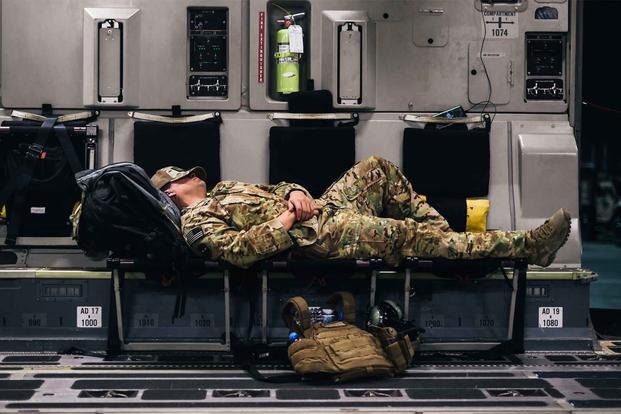Tricare is now covering portable Continuous Positive Airway Pressure (CPAP) machines backdated to Jan. 24, 2019, if certain conditions are met, a Tricare official confirmed via email Monday.
If a service member has been diagnosed with Obstructive Sleep Apnea (OSA) and is being deployed or travels on official business at least three days a month, Tricare will cover the full cost of that active-duty member's respiratory sleep aid through the supplemental health care program.
Tricare switched from an individual to a blanket waiver for these active-duty members at the request of the service branches, the official said.
"With deployments and frequent travel, having a portable CPAP device would increase compliance and medical readiness," he wrote.
Related: Tricare to Cover Laser Treatments for Troops with Razor Bumps
OSA affects nearly 30 million adults in the United States, but about 23.5 million of those cases are undiagnosed, according to a 2016 American Academy of Sleep Medicine (AASM) report.
A leader in the sleep field, AASM also found OSA patients using positive airway pressure (PAP) therapy had improved health outcomes, with the number of heart attacks expected over a 10-year period reduced by nearly half and the 10-year risk of stroke down by 31%.
There are two more requirements for coverage: The service member cannot be retiring or separating from the military within the year and the portable device must have humidification and battery capability.
Eventually, Tricare will not cover a standard CPAP device if the member already has a portable one.
The policy change does not apply to Variable Positive Airway Pressure (VPAP) or Adaptive Servo-Ventilation (ASV) machines.
-- Dorothy Mills-Gregg can be reached at dorothy.mills-gregg@military.com. Follow her on Twitter at @DMillsGregg.
Read more: Hanukkah Stabbing Suspect Was Kicked Out of Marine Corps Boot Camp











